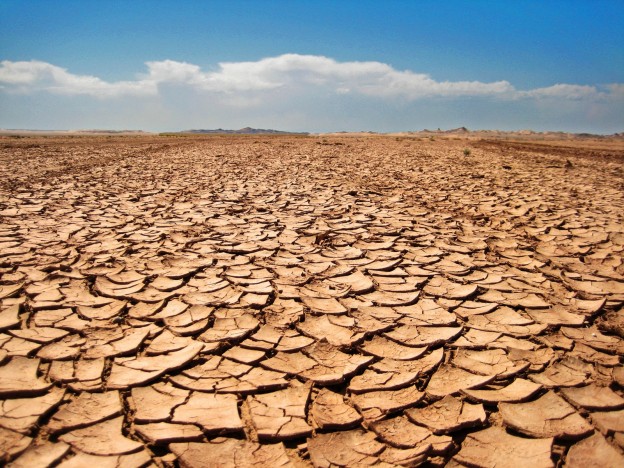It could be argued that the sensation of thirst is one of the most essential biological stimuli. The instinct of thirst is believed to have been responsible for the successful colonization by vertebrates of dry land.
Humans can't typically survive for more than three days without water. So recognizing one is thirsty - and responding - is essential for life. Thirst and our responses to it remain to be fully understood, with functional magnetic resonance imaging (MRI) scan suggesting that our brains respond differently to drinking in order to satiate thirst (a pleasant sensation) versus drinking after thirst has been satiated (an unpleasant experience). Furthermore, unlike camels, sheep, dogs and cows, who are able to quickly and accurately replace body-water deficits within five or ten minutes, we humans (along with guinea pigs, hamsters and rats) appear to be less efficient, with humans able to replace 50-80% of the deficit quite quickly, but repletion for the remainder occurring more slowly.
What happens when you're dehydrated?
Recognizing thirst is particularly crucial for people engaging in sport, a corner of the drinks market that is big business, with expensive hydrating drinks promising all kinds of secondary benefits. But what sounds like a simple process - recognizing and responding appropriately to thirst - can be difficult for more vulnerable sectors of the population: babies and infants, the elderly, or people with reduced kidney function.
Thirst arises as a result of dehydration, which in its most simple definition means "the process of losing water". When we're dehydrated, more water is moving out of our cells, or being lost to the body through sweating, than we are taking in. With water being so vital for our organs, the body reacts to dehydration by trying to conserve as much water as it possibly can. The kidneys remove less water from the blood and we urinate less often - and when we do, the urine is darker in colour. Once a decreased level of dehydration is detected by the body, signals are sent to the brain to initiate the sensation of thirst.
Dehydration can arise as a result of physical activity and exertion, whether recreational or through work, and can be exaggerated in hot or humid environments. It can also occur more easily at high altitudes and following prolonged periods of immersion, such as long-distance swimming in the sea. Dehydration of as little as 1 - 2% of body weight has been associated with adverse effects on mood, cognition, and even mental and physical performance. Cue the role of thirst as our inbuilt sensor to tel us when the body detects that more fluid is required.
Often the trigger for recognizing thirst is a dry mouth and throat, but this symptom typically only occurs after the kidneys have already begun to conserve water and concentrate urine, at around 1 - 2% loss of body weight i.e. the level at which the above adverse effects on function have been identified. Hence the debate as to whether thirst is an accurate indicator of hydration status and whether we should simply adhere to the daily intake guidance rather than relying on our own senses.
If you feel thirsty, then your body is certainly telling you to drink more. If you are in a hot environment, or are very hot from illness or from exercise, then you probably need to drink more in any case. A crude indicator of low hydration is dark-coloured urine during the day. Sports drinks are of most benefit following vigorous exercise for 45 minutes or thereabouts, and homemade versions work just as well as commercial ones for restoring much-needed hydration.
Does Caffeine dehydrate you?
A common perception is that caffeinated drinks dehydrate. This popular urban myth is so widely accepted that in 2016 the UK's Department of Health produced a leaflet for GP surgeries advising people on how to look after themselves in warm weather. They actually included the advice that people should avoid drinking caffeinated beverages in the heat! However, far from tea and coffee being dehydrating the opposite is in fact true. Caffeine is found in tea, coffee, colas and some energy drinks at levels ranging from 40mg for some colas to 140mg for a mug of filter coffee. Overall, the evidence suggests that, while caffeine has a mild diuretic effect, consumption of up to about five mugs of filter coffee a day (500mg/day) does not dehydrate. Rather, consumption of sugar-free tea or coffee can act as a low-calorie option for hydration. Pregnant ladies just need to be mindful to reduce intake to around 200mg/day, in line with medical recommendations, to avoid any risks relating to birth weight and growth.
The bottom line: Being aware of your fluid needs and possibly even setting yourself a loose target of consuming around 1.5 - 2 litres (3 to 4 pints) of water or fluids each day is a good idea. You are likely to remain hydrated throughout the day and reap the associated benefits to health and performance. However, there is no need to get fixated on achieving a definitive amount because you think it will confer some kind of extra benefit. It's also worth remembering that many studies on dehydration and thirst have been conducted in environments where fluid and food intake was controlled: in real life, such circumstances are less likely. Most people can't even feel if they are mildly dehydrated and can cope with daily activities just as adequately as if they were properly hydrated. This is because our bodies are designed to maintain body-water balance, either by increasing or decreasing the sensation of thirst or by regulating urine output.



Comments
Post a Comment